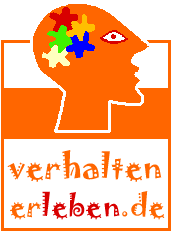|

©
MMI-MMXX verhalten-erleben.de
Über diese Seiten: verhalten-erleben.de stellt einen
handverlesenen Pool von deutsch-, englisch- und spanischsprachigen
Arbeiten und Artikeln zum Themenkreis Psychologie dar. Sie können alle
Artikel für den privaten Gebrauch downloaden oder kopieren; einige
Arbeiten können Sie mit unserem Bestelltool direkt bei
verhalten-erleben.de oder über unsere Partner erwerben.
Keywords: psychologie, psychology, seminararbeit, seminararbeiten, seminar,
seminararbeit, diplom, diplomarbeit, hausarbeit, dissertation, vorlesung,
allgemeine psychologie, definition psychologie, differentielle psychologie,
diplomarbeit psychologie, diplomarbeiten psychologie, dissertation
psychologie, einführung in die psychologie, einführung psychologie,
entwicklung psychologie, enzyklopädie der psychologie, evolutionäre
psychologie, experimentelle psychologie, fernstudium psychologie,
fragebogen psychologie, geschichte der psychologie, gesellschaft
psychologie, grundlagen der psychologie, grundlagen psychologie,
grundwissen psychologie, handbuch der psychologie, hausarbeit psychologie,
institut für psychologie, institut psychologie, interkulturelle
psychologie, kognitive psychologie, kommunikation psychologie, konstanz
psychologie, kritische psychologie, master in psychologie, medizinische
psychologie und soziologie, methoden der psychologie, methoden psychologie,
morphologische psychologie, motivation psychologie, musik psychologie,
persönlichkeit psychologie, philosophie psychologie, physiologische
psychologie, politische psychologie, positive psychologie, psychiatrie
psychologie, psychologen, psychologie, psychologie aktuell, psychologie
als wissenschaft, psychologie beratung, psychologie berufe, psychologie
bielefeld, psychologie buch, psychologie bücher, psychologie de,
psychologie des geldes, psychologie fh, psychologie forschung, psychologie
fragen, psychologie frankfurt, psychologie hamburg, psychologie hannover,
psychologie heute, psychologie in erziehung und unterricht, psychologie
klausur, psychologie köln, psychologie literatur, psychologie magazin,
psychologie medien, psychologie modell, psychologie münchen, psychologie
online, psychologie pdf, psychologie praxis, psychologie schule,
psychologie seminar, psychologie skript, psychologie soziologie,
psychologie studieren, psychologie studium, psychologie theorie,
psychologie und gehirn, psychologie und sport, psychologie universität,
psychologie verhalten, psychologie vorlesung, psychologie wahrnehmung,
psychologische aspekte, psychologische begriffe, psychologische beiträge,
psychologische beratung, psychologische experimente, psychologische
faktoren, psychologische forschung, psychologische grundlagen,
psychologische hilfe, psychologische manipulation, psychologische
methodenlehre, psychologische rundschau, psychologische studien,
psychologische theorien, psychologischen, psycologie, pädagogik
psychologie, pädagogik und psychologie, pädagogische psychologie,
rationelle psychologie, report psychologie, sozial psychologie, soziale
psychologie, uni bielefeld psychologie, uni psychologie, werbung
psychologie, wirtschaft psychologie, wirtschafts psychologie, www
psychologie, www psychologie de, zeitschrift für psychologie, zeitschrift
für pädagogische psychologie, zeitschrift psychologie, zeitschriften
psychologie, zimbardo psychologie, ökologische psychologie.
 |